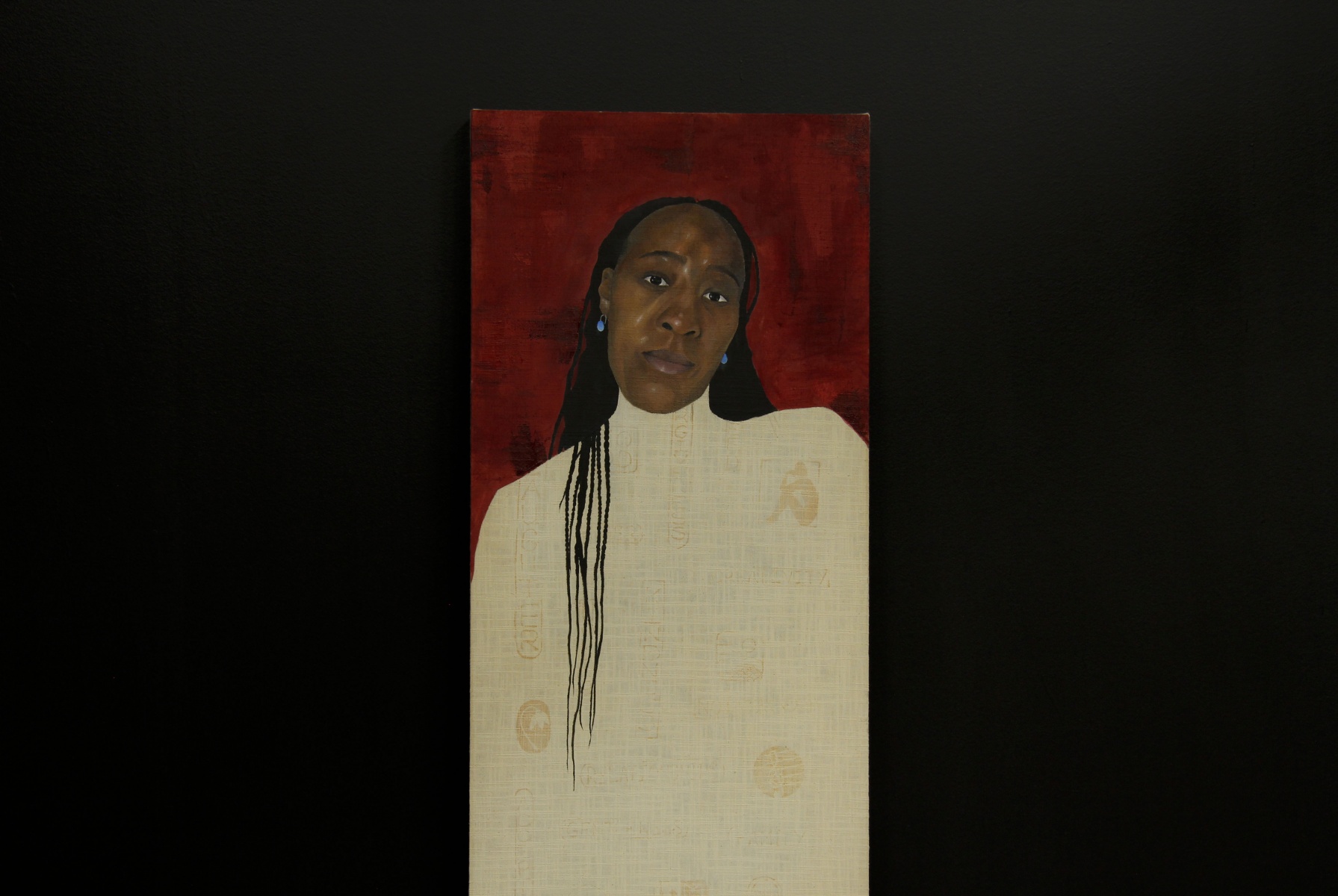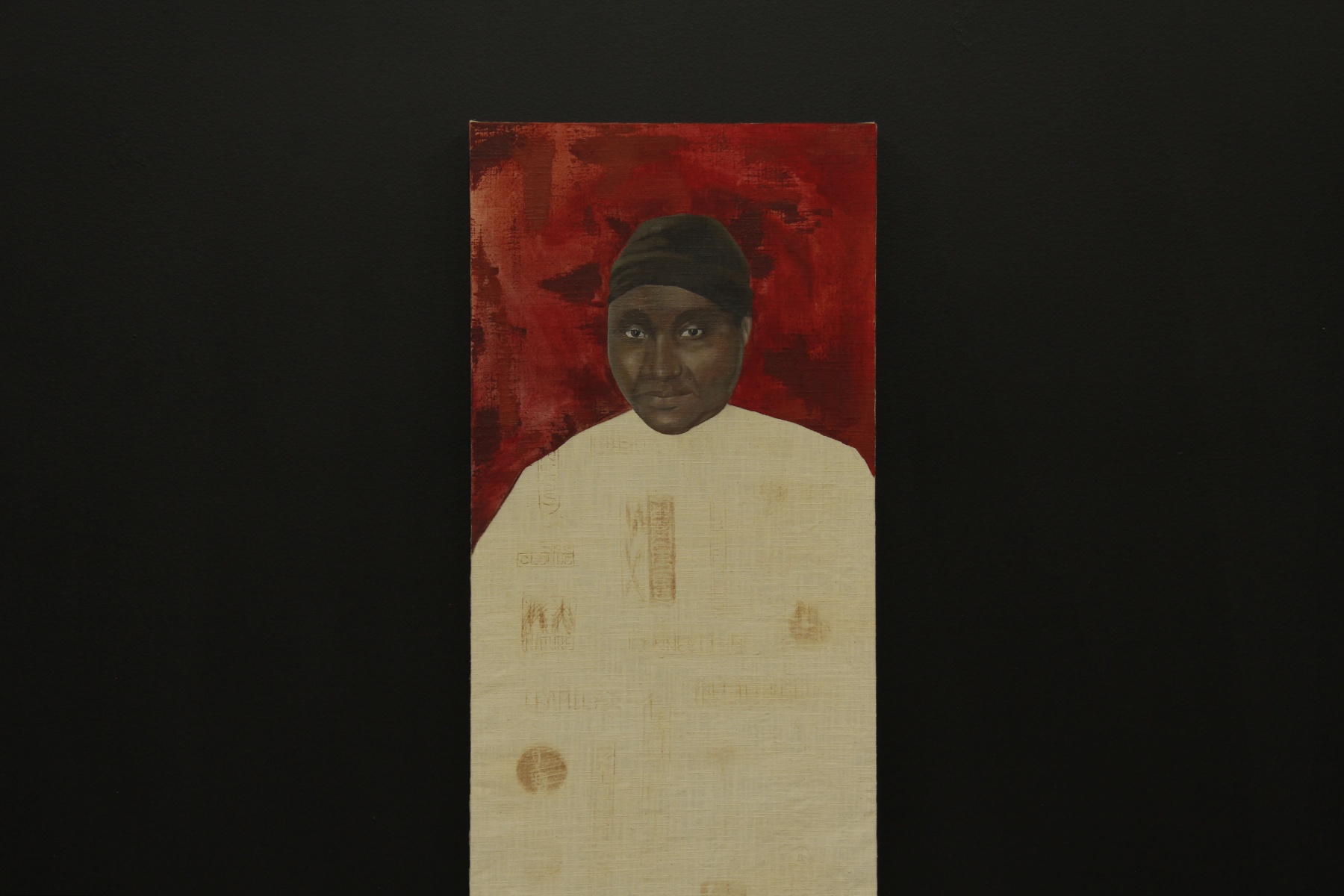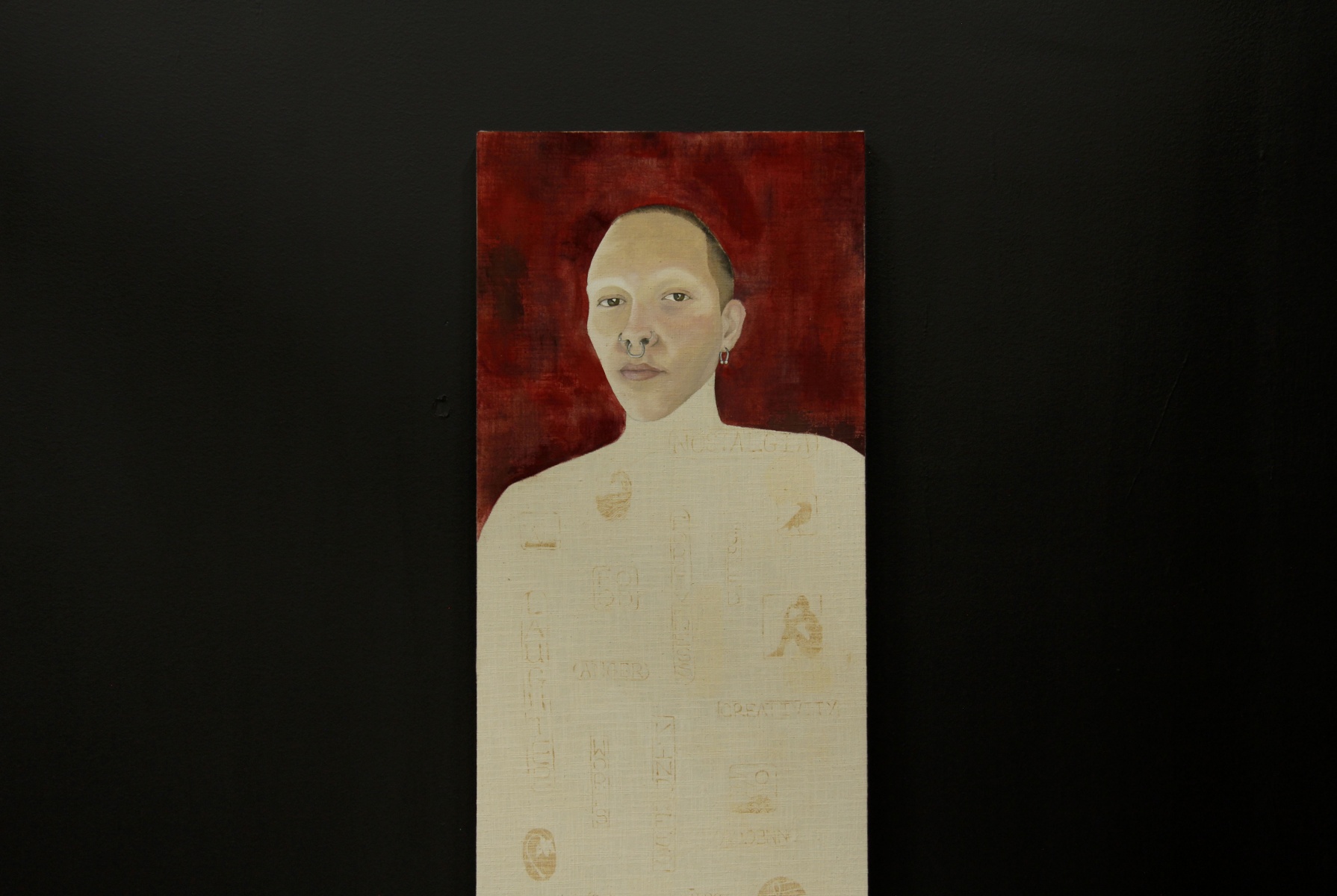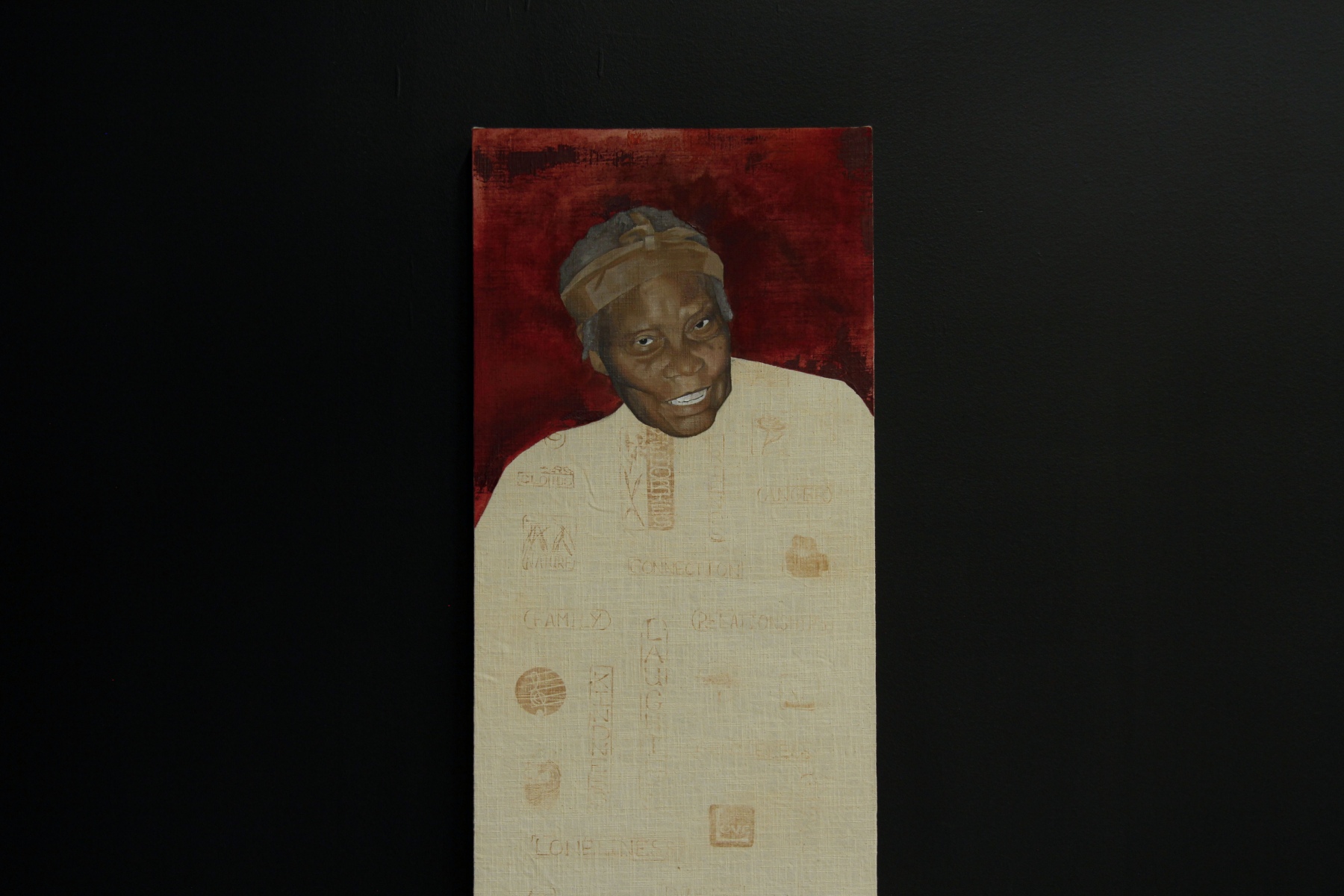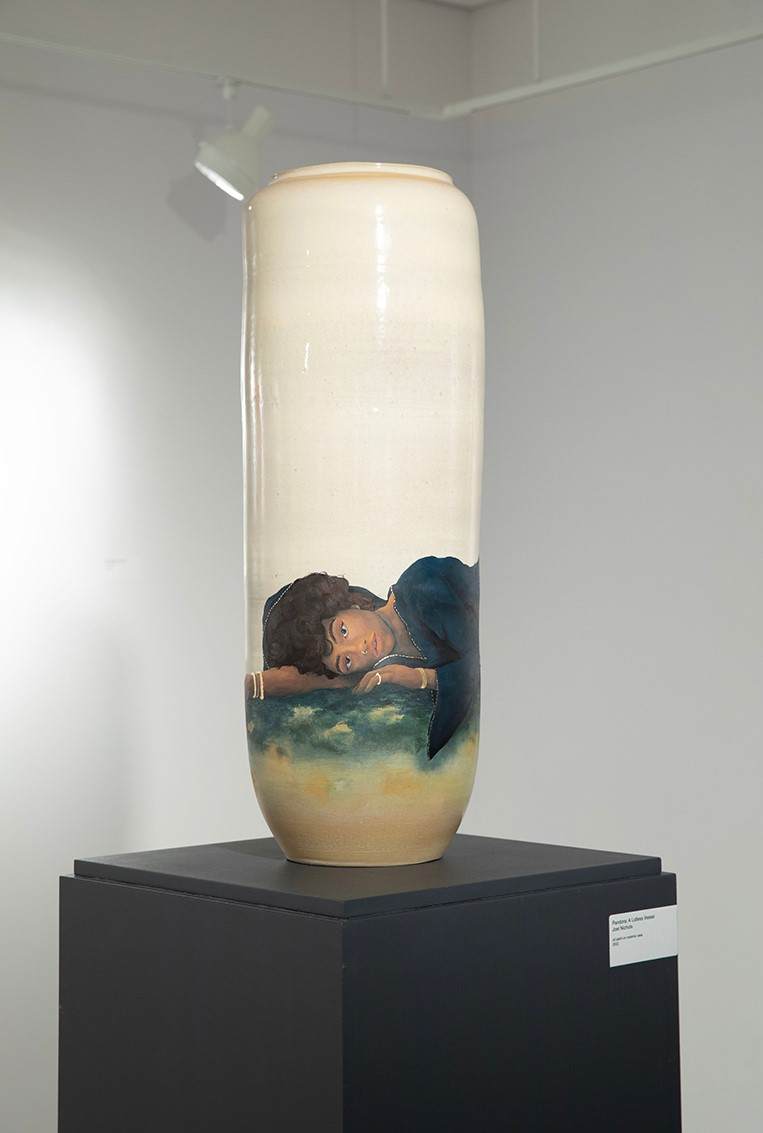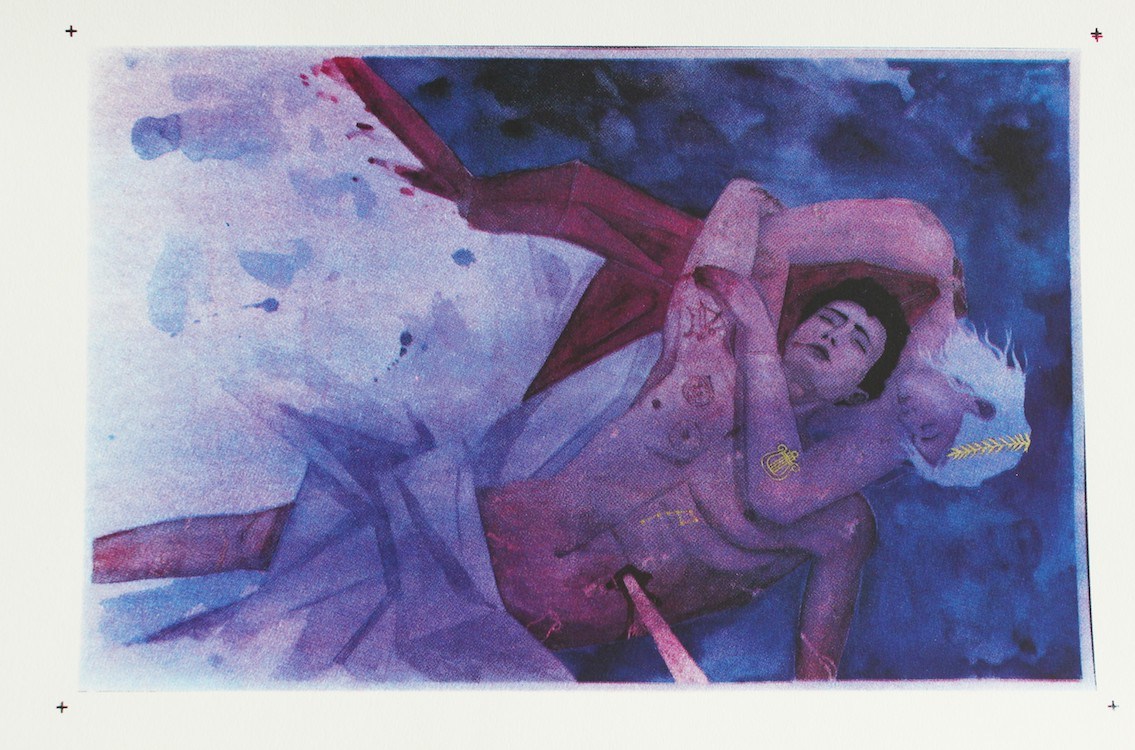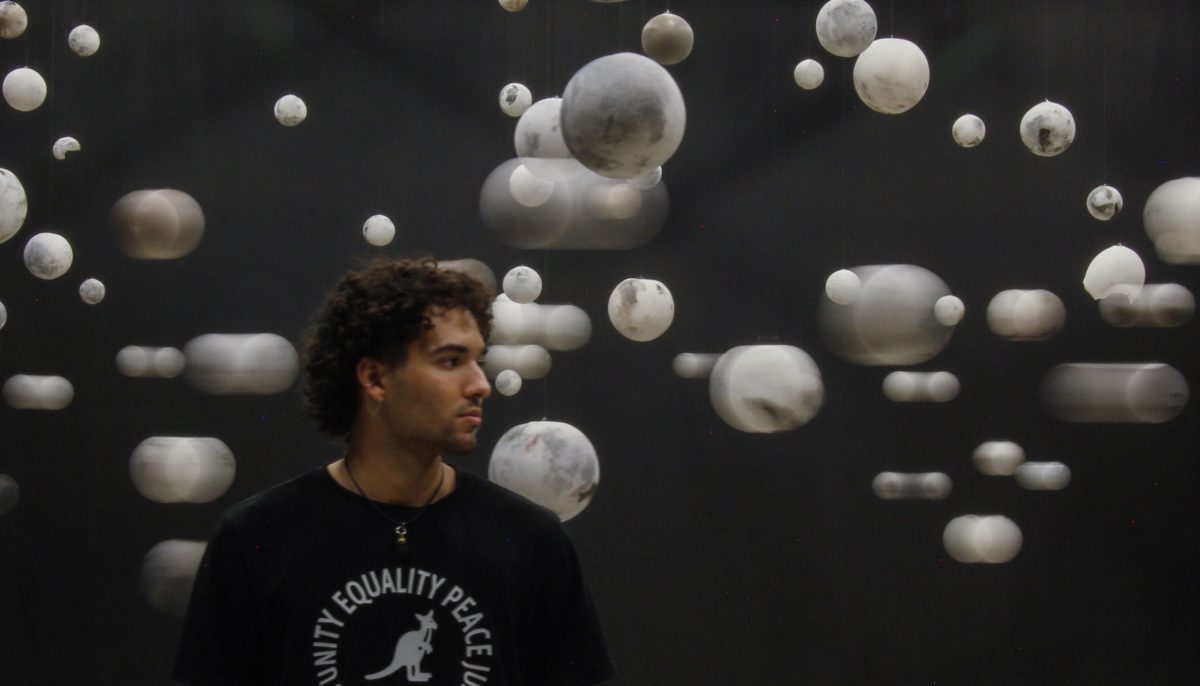
Rhodes Scholar Joel Nichols with their art installation.
Meet our newest Rhodes Scholar, Joel Nichols
This exceptional School of Art grad is UM’s 100th recipient of the prestigious scholarship
He’s been called an exceptional student and a remarkable individual, and one of the best students ever taught by his professors. Joel Nichols is UM’s 100th Rhodes Scholar and the first successful finalist from the School of Art. Considered one of the most prestigious scholarships in the world, the Rhodes Scholarship provides funding for two years of full-time post-graduate studies at the University of Oxford in England.
Nichols (he/they) holds a fine arts undergraduate degree with honours from the University of Manitoba. Born in England and raised in Winnipeg, and of biracial Jamaican-English descent, Nichols is an interdisciplinary artist who connects various themes within his work, many stemming back to his roots. Their work tackles topics pertaining to identity, queer theory, bodily autonomy and the soul, and their practice incorporates ceramics, drawing, painting and printmaking. Outside of his academic pursuits, Nichols has taken active roles in a range of local organizations, from Winnipeg Harvest to the Art City Parade, and from the Children’s Rehabilitation Foundation and the Special Olympics to the Bear Clan Patrol and the Big Brothers organization. During his undergrad, he also facilitated artist talks on subjects such as decolonization and marketing. They intend to pursue an MFA and a Master of Studies in History of Art and Visual Culture at Oxford.
Director of the School of Art Edward Jurkowski says, “We are extremely proud of Joel’s accomplishment. Along with his talent as a creative artist, Joel is a natural and gifted leader who did a remarkable job as co-president of the School of Art’s Student Association and with the various advocacy work that he oversaw. He is well-deserving of the honour as the first School of Art student to receive this prestigious Rhodes Scholarship.”
What his professors say about this outstanding graduate and newly-minted Rhodes scholar:
Shep Steiner, associate professor, School of Art, and editor of Mosaic journal at UM, notes that Nichols is “one of the best students I have ever had the pleasure of teaching; he is also considerate to others, a leader in classroom discussions, an active participant in the local art scene as well as the world of ideas, and [through] his extra-curricular work with grass-roots organizations, an example for others to follow in the wider public sphere.”
Describing Nichols as “an exceptionally fine and mature artist,” Oliver Botar, School of Art professor and associate director of graduate studies and research, says that Nichols’ academic work is also “exceptionally mature, insightful, beautifully written, and erudite.”
He adds, “I have, in my more than a quarter of a century of teaching at the University of Manitoba, never encountered someone as generous with his time and energy, as devoted to working to improve the lives of the less advantaged, than Joel. This demonstrates a force of moral character, and a sense of leadership, a concern for his fellows, that is rare not just among students his age, but among any segment of the population.”
We caught up with Joel to discuss the whirlwind application process, what they are looking forward to in being part of the community of Rhodes scholars and why he believes that artwork can act as a bridge between people.
Rhodes Scholar Joel Nichols on how they are processing the news:
It’s very exciting and thrilling. It’s been so huge that it still hasn’t quite sunk in. It’s completely overwhelming. I have to be reaching out to people from Rhodes and it’s starting to become real. [I and my family] were thrilled, but also incredibly surprised. All of us, at all stages of this, were overwhelmed that I’d made it to each next step. It was just kind of a shock at each stage. I’m definitely thrilled, but it still doesn’t quite feel real. I still don’t completely believe it, quite, but yeah, I’m running with it.
The whirlwind Rhodes application process and interviews:
Oh my gosh, it was amazing. Meeting all of the people like the applicants, the judges, just such smart people and so passionate about their work. It was also so stressful because everyone there really, really wants it. But there was also something just lovely about talking to all of them.
Becoming part of the illustrious Rhodes community:
One of the things I was most excited about is that idea of the Rhodes community and the fellowship that exists beyond this degree and through UM, that I’ll have with me for life. It’s access to some of the greatest minds in the world, the leading researchers in different fields. And as an artist, it’s amazing to have that kind of network set up for you.
On being a School of Art graduate, and submitting an artist headshot for his Rhodes bio:
When I had to choose a photograph for my biography, I remember looking through all of the example-photographs they gave and [they were] like the business headshot — the suit, the white background. The only headshot I have is my artist headshot, which has my work behind me. So I put that forward, and I think that really solidified [for me] that I’m going into this as an artist. It’s wild.
About his artwork:
My latest piece [works] with the idea of the body and the soul and kind of flipping on its head — that kind of narrative of the body as a vessel for the soul — and giving agency and autonomy to the body and the effects that it has on us as people and how we perceive the world and how we’re shaped into who we are. I really want to dig deeper into that research of how we’re perceived societally, but also how that affects us as people. It’s this interplay between who we are and our environments, still sticking within the idea of identity, but in a broader sense of self and perception.
Instead of becoming a doctor, he decided to go into art:
I’ve been surrounded by art my whole life. My mother was an artist for a time, and my grandfather was a very successful woodturner. However, I hadn’t pictured it as a career for myself in the long term. Growing up, I thought I was going to start university and go down the medicine path [to] become a doctor. Then in the second year of my degree, I took one final elective [in fine art] and there was no going back. I spent so much time with this one that it was night and day between my other courses. The next semester I switched my whole degree and went into all of the art courses I needed to make up the courses that I missed over my first year.
I was happy doing science, I was succeeding. However, now art is something that I can’t see not doing. I can’t picture myself doing anything else.
Finding opportunities at UM, and on art being a bridge between people:
Studio practice had a big influence on what I’m able to technically accomplish. For example, in my final [BFA] exhibition, I had these huge ceramic vessels; before I’d come to the School of Art, I’d never even made anything ceramic. Technically it’s the basis of everything I do, whether it be the painting, the printmaking, the ceramics — all of that is built on this foundation that UM gave me.
But I’d also have to say that some of the things that affect my artwork the most from this school have happened outside of classrooms. They’ve been conversations with my peers and my instructors about the real world beyond the walls.
I feel that’s where I get a lot of my inspiration or drive to continue to make work — art can be that bridge, having those real conversations with people learning about each other and humanizing each other. There’s something beautiful about everyone bringing their own viewpoint and their own life with them every time they view a piece of art. There’s something really precious about that. There’s no correct way of seeing art — it’s very freeing in that sense.
His connection with their brother and what he’s looking forward to before attending Oxford this fall:
I’m starting to back into my hobbies and finding myself again. I’m planning on playing a badminton tournament next weekend just for fun, to try and get back into it. I used to play with my brother for the provincial team, playing at national tournaments. We’re a doubles team. He still plays and is definitely up there with the top players in Canada.
The University of Manitoba has produced more Rhodes Scholars than any other university in western Canada. The Rhodes Scholarship has launched the careers of hundreds of prominent Canadians in fields as diverse as medicine, law, academia and politics. The awards are granted on a regional basis, with one winner from B.C, three from the Prairies, two from each of Ontario, Quebec and the Maritimes, and one from Newfoundland. The Rhodes selection process aims to choose young people with proven academic excellence who also show exceptional character, leadership, the energy to use their talents to the full and a commitment to solving humanity’s challenges. The selection process includes a rigorous review prior to an interview with a selection committee composed of subject matter experts and leaders in the community.
Read the Rhodes Scholarships for Canada – 2024 press release.








